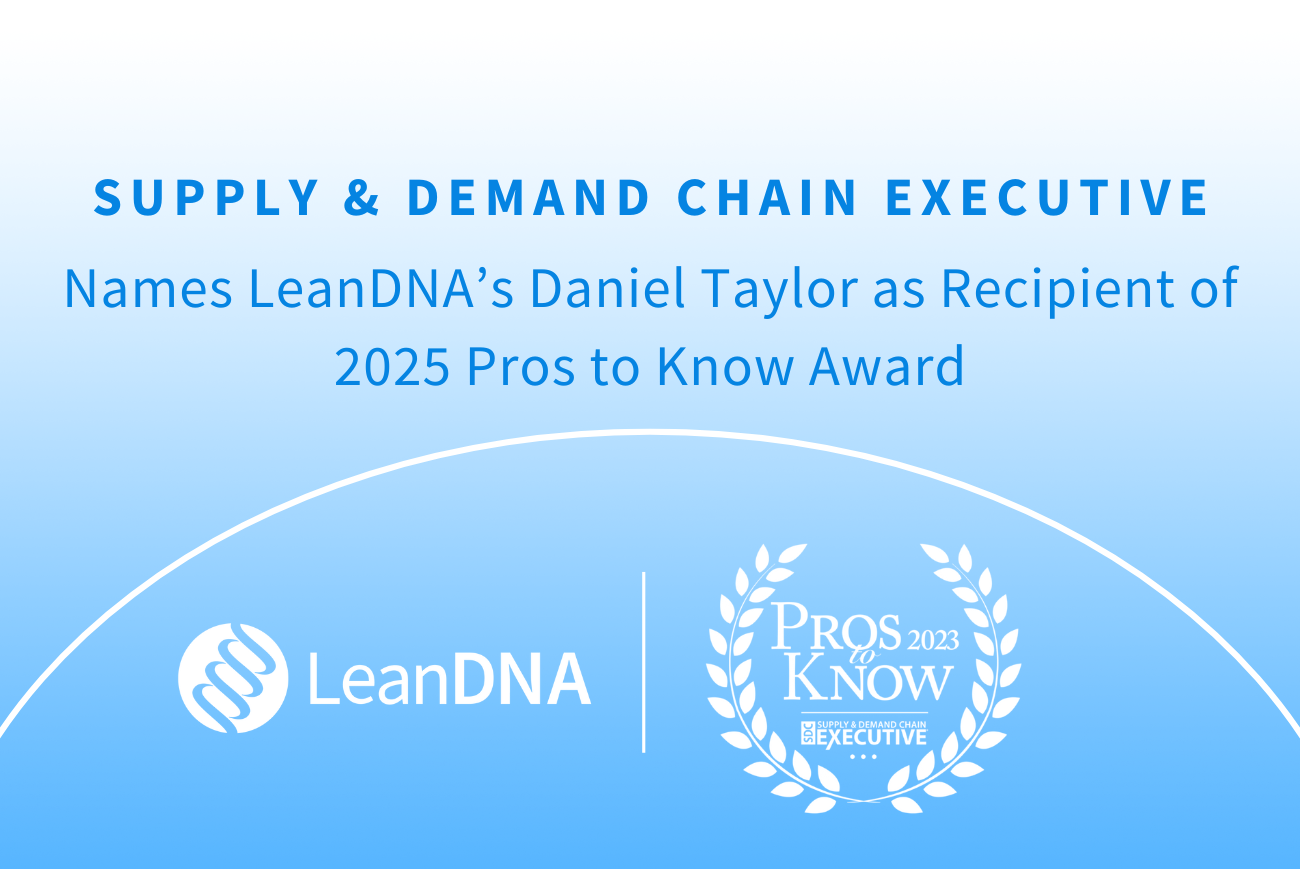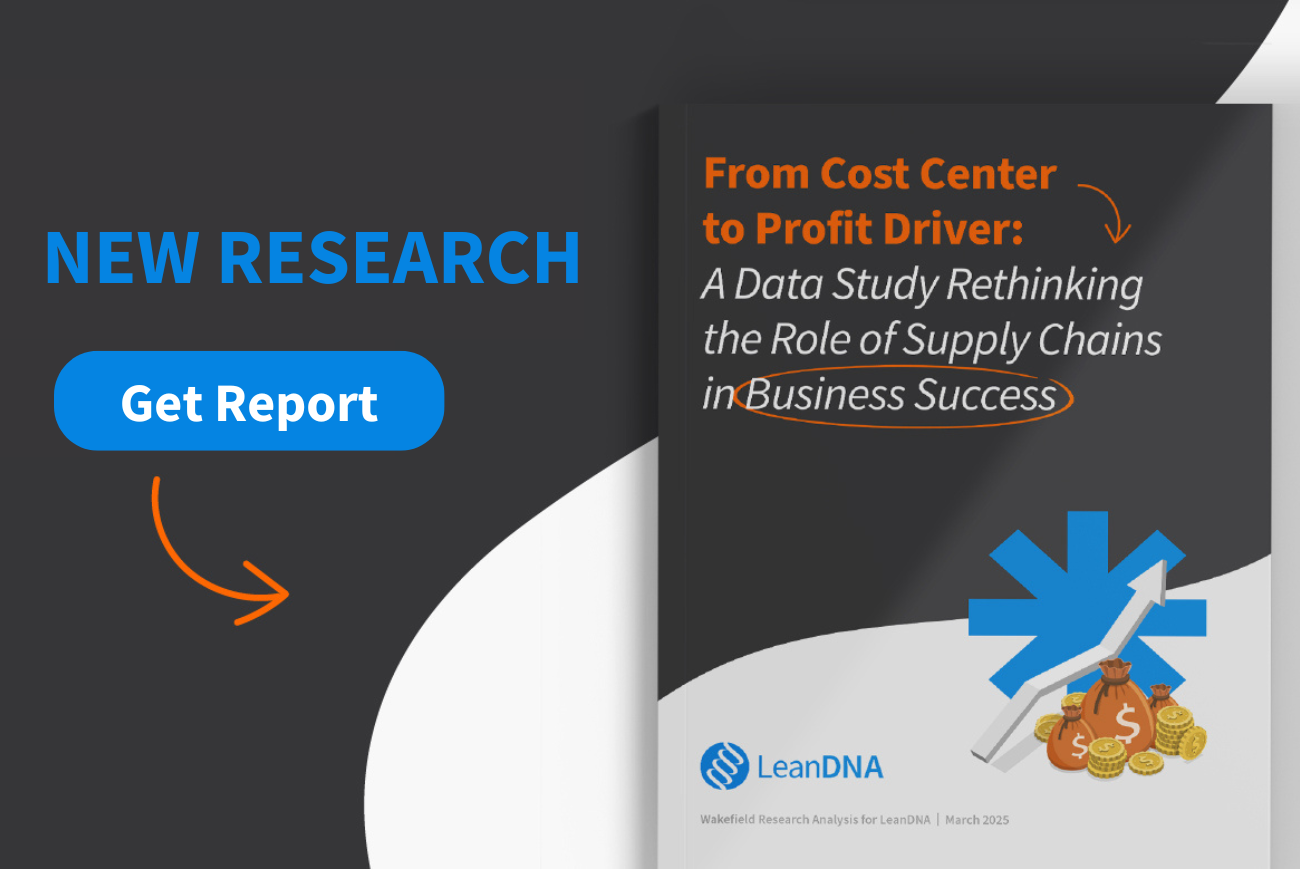Increased sustainability can be extremely beneficial for manufacturers. A focus on sustainability can not only reduce costs, but can also create a more positive brand reputation. Manufacturers are using advanced technology more and more to reduce wasteful activities, build new efficiencies in their operations, and track sustainability goals across their organization. When it comes to optimizing inventory and building sustainable procurement processes, LeanDNA is a valuable resource in a supply chain team's toolkit.
Why is sustainability in supply chains important?
Sustainability, especially in manufacturing, is increasingly important in maintaining the health of our planet. According to the United States Environmental Protection Agency (EPA), industry accounted for 23% of 2019 greenhouse gas emissions alone, following closely behind electricity (25%) and transportation (29%). These industry emissions primarily came from the burning of fossil fuels and other greenhouse gas emissions to create energy to produce products. At the moment, factories and the manufacturing process are some of the main contributors to greenhouse gas emissions. With a focus on more sustainable supply chain management processes and factory management, manufacturers can work to decrease their footprints.
Benefits of Corporate Social Responsibility
Corporate social responsibility (CSR) is when a business holds itself accountable for its effects on not just profit, but also people and the planet (the three P’s). Ideally, companies would uphold these standards to protect the environment, but the potential business-related benefits are substantial, as well. According to a study conducted by Babson College, corporate responsibility practices have the potential to increase revenue by 20%, increase market value by up to 6%, and even increase productivity by up to 13%. A great example of CSR is using environmentally friendly suppliers and trying to build a green supply chain when possible.
Forming a Sustainable Procurement Plan
Creating a plan for sustainability can also be hugely beneficial when differentiating your enterprise from competitors. If given the choice between two equally priced, equally functional, and equally recognized products, consumers are more likely to choose the brand that is more environmentally conscious. According to a 2014 Nielsen study, “2/3 of all consumers choose sustainable products over conventional products.”
For a sustainable procurement plan, companies must delve into the social and environmental factors of their current plans. Some companies have committed to sustainable production already, publicly announcing targets that can help lead the way for more companies to make their own.
For example, Morgan Advanced Materials, a specialist product manufacturer, is working towards building a net-zero emissions business by 2050. Their commitments to sustainability are not limited to emissions but include reductions in water use and improved efficiency at all manufacturing sites.
Similarly, Spirit Aerosystems, an aerostructures manufacturer, is also aiming to reduce its greenhouse gas emissions. Their sustainability efforts include efficient water use and recycling, wind energy, and even employee-specific efforts like a special remote event for employees to drop off hazardous materials to be disposed of properly for free.
When it comes to sustainability goals, LeanDNA can help. Here’s how.
1. Reduce Inventory
Reducing excess inventory is a major functionality of LeanDNA. You can’t have lean manufacturing without the lean. Our software uses advanced AI technology to optimize inventory management processes and help reduce excess inventory. This reduction of excess inventory directly leads to a reduction of excess waste, helping factories reach sustainable manufacturing goals. LeanDNA provides pre-built dashboards that identify and assign the highest value action messages to empower manufacturers to take better informed actions in their inventory management processes. With this information, buyers can simplify their workflows, identify the root causes of their inventory state, and make informed decisions with recommended inventory actions
2. Connect Supply Chains
A connected supply chain allows manufacturers to run operations more efficiently and allows manufacturers to reduce waste and free up time and money that was previously tied up in unnecessary processes. A connected supply chain means teams can see where shortages and excess exist in their operation before wasteful decisions are made—like inventory bloating or expediting shipping. The more efficient a supply chain is, the less harmful pollutants and extra scrap it will put into the environment. To create a better-connected supply chain, efficient communication and visibility between sites, business units, buyers, managers, and suppliers is crucial.
LeanDNA helps manufacturers stay connected with their suppliers through LeanDNA Supplier Connect—a functionality that allows buyers to streamline communication with their suppliers and provides total visibility into POs and predicted future demand. Companies can consolidate their data into one single source of truth that is specially built for supplier collaboration. Admins even have the ability to configure which specific report views are available to suppliers and pull data to track supplier progress and engagement. With better communication, the relationship between buyer and supplier is solidified and the supply chain as a whole runs more smoothly.
LeanDNA for Sustainable Supply Chain Management
Our dynamic dashboards and project tracking allow manufacturers to stay connected, aligned, and standardized on their inventory goals—including sustainability goals. Not only can customers rapidly reduce their excess inventory levels, but also manage critical shortages that can lead to extra (and costly) shipment and freight, and track ongoing projects from a single view.
Want to see how LeanDNA can help your business on the path to sustainability?
FAQ
What is sustainable supply chain management?
Sustainable supply chain management includes choosing sustainability throughout the entire supply chain, and taking the social and environmental consequences into consideration before making business decisions.
What is corporate social responsibility?
Corporate social responsibility is when a business holds itself accountable for its effects on not just profit, but also people and the planet. Ideally, companies would uphold these standards to protect the environment, but the potential business-related benefits are substantial, as well.
People, planet, and profit. These are the 3 P’s of the triple bottom line—a framework that encourages companies to not just think about how their business decisions affect profit, but the impact on society and the environment around them as well.
What is the pyramid of corporate social responsibility?
The pyramid of corporate social responsibility has 4 levels: Economic Responsibilities, Legal Responsibilities, Ethical Responsibilities, and Philanthropic Responsibilities. Originally published in 1979 by Archie Carroll, this was the foundation for modern corporate social responsibility.
What is sustainable production?
Sustainable production is when goods are created using sustainable practices. This can include limiting greenhouse gas emissions, consciously generating less waste, recycling, etc.
What is a plan for sustainability?
A plan for sustainability is the plan that a company creates to involve sustainable practices in their business. This is typically for the long-term goals and goes into the financial, social, and environmental aspects of the business’s future.



